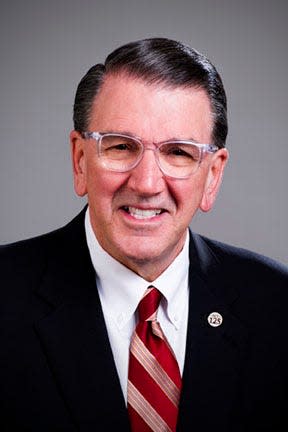WT President Wendler writes about his expections of himself, community
The American Association of Colleges and Universities defines inclusion as "the active, intentional, and ongoing engagement with diversity in the curriculum, in the co-curriculum, and in communities (intellectual, social, cultural, geographical) with which individuals might connect in ways that increase awareness, content knowledge, cognitive sophistication, and empathetic understanding of the complex ways individuals interact within systems and institutions." West Texas A&M University intends to create a sense of belonging for everyone in ways that are simultaneously comfortable and challenging to each individual. Every member of the WT community, not a few or one, is responsible for ensuring all feel welcome and included through engaged citizenship. Educating engaged citizens is the ultimate purpose of public higher education. A strong academic culture serves our state and region and, most importantly, our students by demonstrating how to live, work and act in a complex world using a simple precept — treat others as you would like to be treated. So simple it is often forgotten. Often referred to as the law of reciprocity, the law is espoused in every major faith system on the face of the planet. While often attributed to Jesus Christ, it existed for millennia before He walked among people. It is the enlivening principle of our free society, and it breathes life into the human organization we know as the United States of America.

Higher education institutions have spent millions and realized only millimeters of progress, paying lip service for too long by assigning an individual or a select group the responsibility for ensuring an institutional culture of belonging. It is unfair and almost always ineffective to ask a single person or entity to effect a positive, reflective, responsive culture. Engaged citizens create culture. Hierarchies of responsibility result from culture. Organizations are not culture's genesis; instead, they are often its nemesis.
Burdening one individual, no matter how talented, with creating belonging is unfair and does not shape a culture. It is everybody's business — any effective organization results from empowered individuals exercising free will to move a group forward purposefully. An effective university will be a reflective and responsive place representing and serving all. There is no box to check. The goal is to be a campus that embraces, continually works for and celebrates the significance of all by creating an environment that is the responsibility of every student, faculty and staff member at WT.
As President of West Texas A&M University, I have high expectations of myself and our community. Among my expectations are the following:
The Power of Reflection and Response: WT will continue to become more reflective of and responsive to the people of the Texas Panhandle. We are THE Panhandle's University. The ethnic, religious, political and social individualities of the student body, faculty and staff directly support the University's intellectual mission by assuring a broad and relevant set of experiences, perspectives, needs and talents are present in the academic and social community. WT will respond to the community's distinctive needs through programs and services and by living up to its fundamental commitment to the dignity of all persons.
The Power of Place: The Panhandle is a unique place in Texas and on the Great Plains of the United States of America, a vital hinge-pin of regions, cultures and ideas. The geography and history of the place and its contribution to food, fuel and fiber production have created a unique mix of values responsive to our state's and nation's founding truths and principles. Many forces have influenced the expression of these values, and if nurtured correctly, these values create the best of who we are and can be.
The Power of Belonging: WT's clubs, organizations, teams and residence halls support students in their manifold expression of beliefs and ideas, which are singularly important in creating engaged citizens. Such groups connect individuals to belonging to something larger than self while simultaneously espousing the import of rugged individualism with civic purpose. This Jeffersonian concept is foundational to free thought and a free society.
The Power of Engaged Citizenship: At West Texas A&M University, we believe engaged citizens will exhibit the following values:
Trust and its importance in sustaining a positive learning environment and a well-functioning culture;
Regard for others and social groupings as the empowering complement of citizenship and the power of the golden rule in civil society;
Personal responsibility and free will as concepts that drive prosperity and liberty for a productive end;
The free and open exercise of faith, beliefs and association in all forms as inarguable rights of citizenship and the historical role of personal beliefs in a thoughtfully guided moral order;
Personal and civic loyalty, the power of belonging to something larger than self and the role of that membership is nourishing a free and open republic;
The importance of rugged individualism, taking responsibility for one's actions, and the contribution this makes to the effective functioning of families, towns, regions, states and our nation.
Engaged citizenship will be our guiding precept as we work to help students understand what it means, looks like, and its power to form a free society positively. While engaged citizenship as a foundational idea may or may not be present in other universities, it is the bedrock of WT.
Walter V. Wendler is President of West Texas A&M University. His weekly columns, with hyperlinks, are available at https://walterwendler.com/
This article originally appeared on Amarillo Globe-News: Wendler commentary: Engaged citizenship is the responsibility of all
